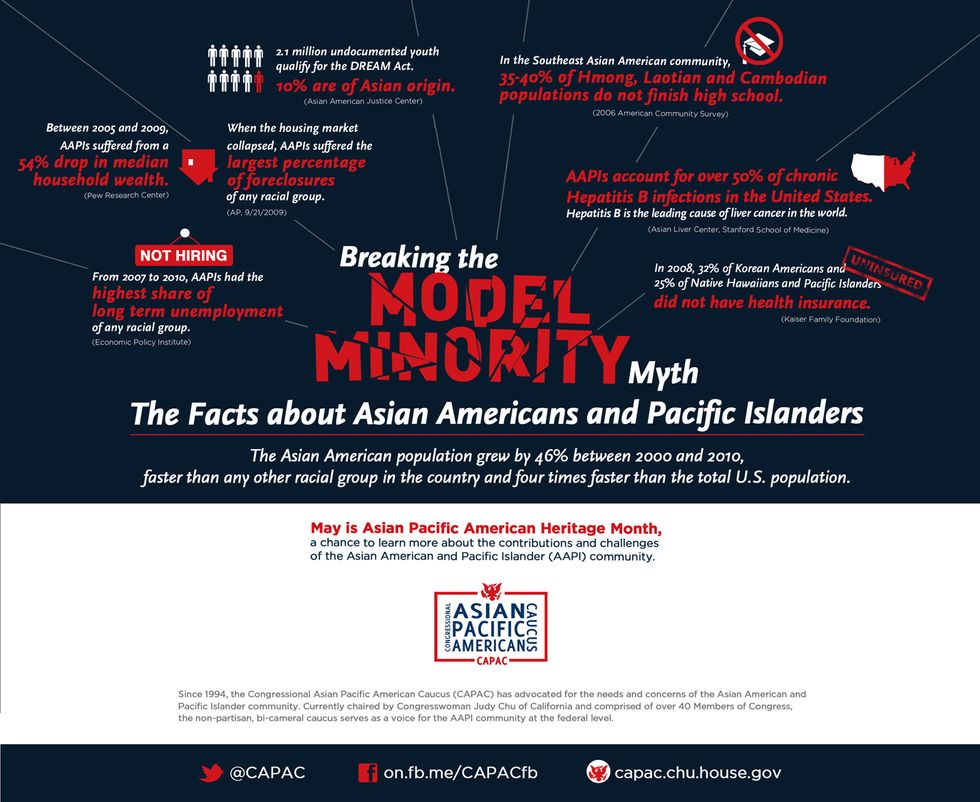I hate math. Though I don’t have a personal hatred of numbers and ratios, I am simply not good at utilizing them in calculus problems. Or maybe it’s the frank realization that I really don’t care how fast superman throws a peanut into the air that prevents me from smiling with joy when I open a math textbook. I’ve never watched anime in my life and the only reason I know the difference between anime and manga is because I speak Japanese. Regardless of the fact that I have yet to get my license, I consider myself a good driver. What am I? I’m Asian.
Stereotypes around Asians are everywhere; and it has come to a point that such generalizations have become the “norm.” In recent years, there has been an upsurge in research and articles surrounding the familiar concept of “Asian success.” As the term blatantly suggests, the theory revolves around the fixed image that Asians are monolithically a successful minority race. With titles like, “How do Asian students get to the top of the class,” or “The Secret to Asian Success,” articles paint a model picture of perfection. The Asian student in a math class getting straight As; Asians who become engineers and doctors. Like Cinderella, it’s a typical rags-to-riches story. Though, in this case, instead of a white fairy godmother waving a stick around singing Bibbidi-Bobbidi-Boo, Asian success is credited to a magical blend of hard work, Confucian principles, and economic advantage.
In terms of accuracy, these articles are far off. American society views the Asian race as a blob of Chinese tiger moms, math, sushi, and any other cultural facts that mainstream media over-intensifies and misrepresents. It’s not just mainstream media images, though: published statistics are just as flawed. Data generalizes Asian countries into one category. Analyzed graphs portraying the growth - and success - of Asians too often ignore the high percentage of Laotians and Bhutanese Americans who live below the poverty line. It’s easy to point to vague statistics and a couple privileged Asian Americans as evidence that America doesn’t need to worry about Asian racial inequality. However, such stereotypes cause far more harm than just white ignorance when there are lives on the line. It is high time for people to understand the Asian success story for what it is: a myth.
Perhaps the biggest harm of the myth lies in its societal effects. The stereotyped story around Asians is as much clever as it is flawed. Producing images of obedience and subservience while pegging Asians as the “model citizen,” clearly disincentivizes the idea of backlash and protest. Praising their supposed docility, white America utilizes the model minority myth to propagate a beacon of light for other racial minorities to follow; as if to say, “Here is a true minority race that follows rules! Look how far they have come! You can do it too!” At the end of the day, the myth seems to be another political tool used to suppress voices.
And especially in today’s day and age where, fake news permeate every corner of mass media, that is more dangerous than ever. Weeding out true information has become a tiring task, especially with the spotlight fixed firmly on the White House (though with good reason). As society continually sees a rise in white supremacy, white nationalist movements, and presidents who are quick to engage in hateful discourse, there is no doubt that Asians will be pushed further and further into a corner, shrouded by a layer of ignorance. I, for one, don’t want to sit around idle until then. I say that society must accept and acknowledge that a critical conversation about Asian inequality and racism is long overdue. And to realize that in order to truly reach the land of prosperity and equality that the country is said to represent, white America must open its eyes. Look out into the world. Look behind generalized statistics. Look into another culture. Because neither ignorance or complacency is attractive for a country whose main claim to fame is patriotism and liberal open-mindedness.


















